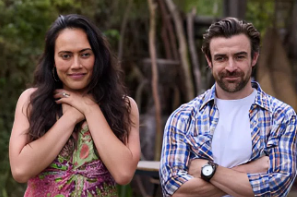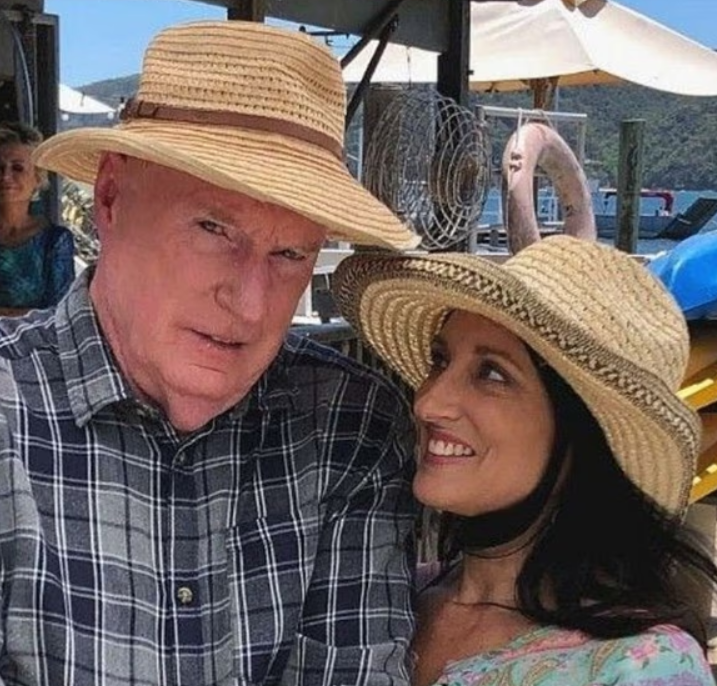Writers for Australia’s iconic long-running soap opera, Home and Away, are reportedly on the cusp of a significant legal confrontation with Network Seven, alleging decades of unpaid superannuation, a dispute that has sparked intense discussions of a potential strike. The Australian Writers’ Guild (AWG) is actively advocating for Seven Productions, the entity behind Home and Away, to adhere to a recent Australian Tax Office (ATO) ruling concerning its members’ superannuation entitlements, a move that could reshape compensation practices across the Australian screen industry.
The ATO’s definitive finding in December of the previous year clarified that film and television writers engaged by production companies to create scripts are fundamentally operating as employees, rather than merely selling a product or intellectual property. This pivotal ruling, according to the AWG, unequivocally mandates that writers contributing to programs such as Home and Away are entitled to superannuation, a form of compulsory retirement saving, benefits they claim have been historically and systematically withheld. This issue is not isolated to Network Seven; writers for other prominent Australian series, including Neighbours (produced by Fremantle Australia and now revived on Network Ten and Amazon), have also reportedly not received their superannuation payments, indicating a widespread industry practice that the AWG seeks to rectify.
The gravity of the situation is underscored by direct comments from those affected. One Home and Away writer, expressing deep frustration, conveyed a strong sentiment that writers should collectively challenge Network Seven’s treatment and consider strike action to secure their rightful entitlements. An anonymous source further revealed that the superannuation claim, potentially amounting to millions of dollars given the longevity of the programs and number of affected writers, appears destined for court. This source indicated that both Home and Away writers and the AWG have long been aware of Network Seven’s legal obligation to pay superannuation under the Superannuation Guarantee Act. However, Network Seven has consistently denied any such obligation, arguing a lack of legal basis, despite the clear stipulations of the Act and the recent ATO clarification.

Anecdotal evidence suggests that Network Seven may have, in the distant past, paid superannuation to its writers, but current practices indicate a stark absence of such payments for approximately the last two decades, a pattern reportedly mirrored by Fremantle concerning Neighbours. This stands in stark contrast to some independent production houses, such as Matchbox Pictures (known for critically acclaimed dramas like House of Gods, The Heights, Glitch, and The Slap), which reportedly do pay superannuation to their writers. This disparity highlights an inconsistent industry landscape where compensation practices vary significantly, creating a two-tiered system for screenwriters.
A significant proportion of Home and Away writers operate as freelancers, even those who have dedicated over a decade to the program and are integral to its continued success. This precarious employment status has cultivated a pervasive climate of fear, with sources indicating that writers are hesitant to speak out on this or other workplace issues due to concerns over immediate job security and potential blacklisting within a relatively small industry. An ex-Home and Away writer reportedly attempted to involve the ATO to force Seven to pay her superannuation, but only after leaving the show, illustrating the perceived personal and professional risks associated with challenging entrenched practices while actively employed.
The Australian Writers’ Guild has unequivocally articulated its stance, affirming that writers engaged by production companies for scriptwriting services are unambiguously entitled to superannuation under the Superannuation Guarantee (Administration) Act. The Act specifically defines an employee relationship where a contract is “wholly or principally for the labour of the person.” Furthermore, it explicitly states that anyone paid to “perform services in, or in connection with, the making of any film, tape or disc or of any television or radio broadcast is an employee of the person liable to make the payment.” The ATO ruling further clarifies that screenwriters providing services are indeed deemed employees for superannuation purposes, distinguishing them from those merely selling existing intellectual property.

Conversely, Screen Producers Australia (SPA), which represents major local production companies like Fremantle and Endemol Shine (though notably not Seven Productions), holds a more ambiguous view on the superannuation issue. Last year, SPA advised its members that while some writing services might attract superannuation, writers commissioned to pen scripts are often paid a fee for copyright and the usage of their work, rather than solely for providing a direct service. This interpretation suggests that the payment structure itself could influence the superannuation entitlement. The diverging legal interpretations between the AWG and SPA underscore the complexity and lack of consensus within the industry, leading both organizations to currently seek legal counsel to clarify their positions and potential paths forward.
The AWG has not dismissed the possibility of initiating a class action lawsuit or calling for a strike, though it acknowledges the significant financial hardship a prolonged strike could impose on its members, many of whom are already struggling with inconsistent income. Efforts to obtain comments from Network Seven, Fremantle, the Australian Writers’ Guild, and Screen Producers Australia regarding this escalating dispute have so far been met with silence, indicating the sensitive and potentially litigious nature of the claims.
This Australian dispute resonates with recent, high-profile industrial actions in the American entertainment industry, providing a potent international context and precedent. In May 2023, the Writers Guild of America (WGA) initiated a strike against the Alliance of Motion Picture and Television Producers (AMPTP), a stoppage that lasted a substantial 148 days. Their demands primarily focused on securing a larger share of residuals from streaming services, establishing clear minimum staffing requirements for writers’ rooms, and setting limits on the use of generative artificial intelligence in scriptwriting. This action was subsequently joined by the Screen Actors Guild – American Federation of Television and Radio Artists (SAG-AFTRA) in July 2023, with their combined strike continuing until November. These collective actions represented the most significant interruption to the American film and television industries since the COVID-19 pandemic. Ultimately, both unions successfully ratified new agreements with production companies, securing substantial concessions for their members, including improved compensation, health and pension benefits, and protections against AI, providing a powerful demonstration of collective bargaining power.

Adding a tangible and personal dimension to the current situation, it was recently revealed that Fiona Bozic, a veteran Home and Away scriptwriter with over 20 years of dedicated service to Network Seven, is currently suing the network. Bozic filed a statement with the Federal Court in June, alleging breaches of general protections provisions, and is being robustly represented by Thrive Workplace Consulting & Legal. Her LinkedIn profile details her extensive and critical responsibilities as a script producer and scriptwriter for Seven, including for Home and Away and previously Neighbours. Her role involves not only overseeing the creation of engaging, creative, and compelling storylines but also structuring five episodes a week, developing nuanced characters, and recruiting crucial script department personnel. She has contributed to a diverse range of story themes, tackling complex issues from domestic violence to mental health trauma, showcasing the profound impact and intellectual labour involved in her work. Bozic has declined to publicly discuss the specifics of her claims, while Network Seven has issued a standard response, stating they would not comment on a matter currently before the courts. This individual lawsuit further highlights the simmering tensions and deeply personal stakes involved in the broader battle for fair compensation and recognition for writers in the Australian screen industry, casting a spotlight on the often-unseen labour that keeps beloved shows like Home and Away on air.